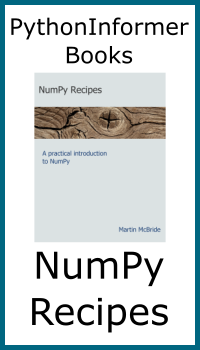Object protocols
Categories: object protocols

There are several special types of objects that you might have met already. These include:
- Iterables - an iterable is an object that you can iterate over, essentially anything that you can loop over using a for loop. This includes lists, tuples, strings, ranges, generators, dictionaries, sets, and other objects.
- Sequences - sequences are types such as lists, tuples, and strings. They are collections of elements that allow you to index, search and count elements.
- Context managers - these are objects than can be used in
withstatements, top manage resources. The most common example is the file object. - Callable objects - these are objects that can be called as if they are functions.
In addition to these existing object, you can easily implement your own similar classes. For example you can create a context manager that will integrate seamlessly with Python with statements, to provide your code with the ability to automatically clean up when an object is no longer required.
You might perhaps expect that Python would have special base classes for these types. For example, you might expect that there would be a Iterable class that all iterables are based on, or a ContextManager class that all context manager inherit.
But in fact, Python has a simpler, more flexible mechanism, based on magic methods.
For example, any class in Python that implements the magic methods __iter__ and __next__ will automatically be an iterator. If you use that class in a for loop, it will just work. This is an example of duck typing. If an object does all the things an iterator does, then it is an iterator.
In this series we will look at:
- Duck typing.
- Iterable/iterator object protocol.
- Implementing sequences.
- Implementing context managers.
- Implementing callable objects.
See also
Join the PythonInformer Newsletter
Sign up using this form to receive an email when new content is added:
Popular tags
2d arrays abstract data type alignment and angle animation arc array arrays bar chart bar style behavioural pattern bezier curve built-in function callable object chain circle classes clipping close closure cmyk colour combinations comparison operator comprehension context context manager conversion count creational pattern data science data types decorator design pattern device space dictionary drawing duck typing efficiency ellipse else encryption enumerate fill filter font font style for loop formula function function composition function plot functools game development generativepy tutorial generator geometry gif global variable gradient greyscale higher order function hsl html image image processing imagesurface immutable object in operator index inner function input installing iter iterable iterator itertools join l system lambda function latex len lerp line line plot line style linear gradient linspace list list comprehension logical operator lru_cache magic method mandelbrot mandelbrot set map marker style matplotlib monad mutability named parameter numeric python numpy object open operator optimisation optional parameter or pandas partial application path pattern permutations pie chart pil pillow polygon pong positional parameter print product programming paradigms programming techniques pure function python standard library radial gradient range recipes rectangle recursion reduce regular polygon repeat rgb rotation roundrect scaling scatter plot scipy sector segment sequence setup shape singleton slice slicing sound spirograph sprite square str stream string stroke structural pattern subpath symmetric encryption template tex text text metrics tinkerbell fractal transform translation transparency triangle truthy value tuple turtle unpacking user space vectorisation webserver website while loop zip zip_longest
